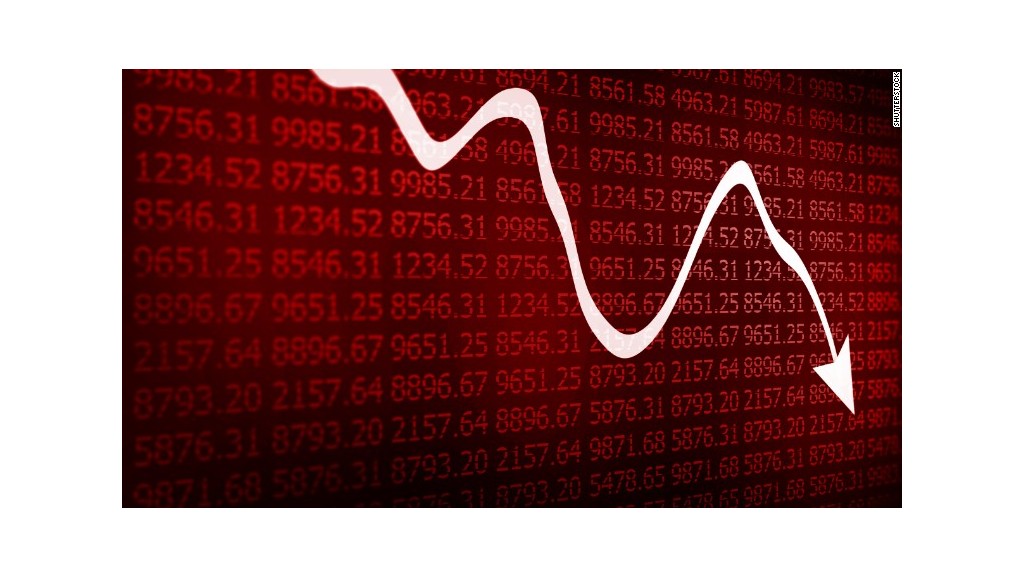
The stock market is harder to figure out than Kanye West's tweets.
Even though oil prices fell Tuesday after OPEC announced a mere freeze of oil production instead of a much prayed for output cut, stocks moved higher for the second straight day.
The Dow jumped 223 points following Friday's 314-point surge.
The Nasdaq and S&P 500 also finished higher Monday since hitting their lowest levels since 2014 on Thursday.
So is this a sign that, to paraphrase Thin Lizzy, the bulls are back in town? (Those wild-eyed boys had been away.)
Perhaps. Heavy emphasis on perhaps.
Related: Airports? Toll roads? Boring is sexy in this market
The Dow recorded two straight days of triple-digit point gains as recently as January 28 and 29. That didn't turn out to be a market bottom.
But there was a lot to like on Tuesday.
For one, the rally was broad-based -- a very encouraging development.
Banks and tech stocks -- two of the most beaten up sectors so far in 2016 -- were among the leaders.
But bloodied firms with big ties to oil and other plunging commodity prices moved sharply higher as well, including Chesapeake Energy (CHK), Williams Companies (WMB) and Freeport-McMoRan (FCX).
Struggling media stocks of both the old and new variety were surging too. Viacom (VIAB) and Yahoo (YHOO) each ended higher.
Related: These bulls aren't giving up on tech stocks just yet
Good earnings news from Burger King parent company Restaurant Brands (QSR) and Spam maker Hormel (HRL) caused both of those stocks to surge as well. Hormel actually hit a new all-time high. So did food companies Kellogg (K) and Tyson (TSN).
There was even a merger to get investors excited. Private equity giant Apollo Global (APO) agreed to acquire home security company ADT (ADT) for a gigantic premium to Friday's closing price.
So what's this? Investors were actually paying attention to corporate news instead of myopically focusing on what crude oil is doing every nanosecond? That's refreshing. And rational.
Colin Moore, global chief investment officer for Columbia Threadneedle Investments, wrote in a report Tuesday that the market has been stuck in a "pattern of over-optimism and pessimism."
Stock prices went too high last year because people were way too bullish. But the current negativity has led to a correction that has taken the market back to more reasonable levels.
Moore said investors shouldn't ignore the solid job numbers in the United States and healthy sales for homes and cars. It's a mistake to pay attention solely to bad news about emerging markets and commodity prices. Things aren't as bad as they appear.
In another positive development, gold fell nearly 2.5% Tuesday. And the 10-year Treasury yield ticked higher as investors sold bonds.
Related: 10 stocks we love -- especially in this market
Gold and bonds have benefited this year from the so-called fear trade. Jittery investors have plowed into these assets because they are perceived as being less risky than stocks.
If investors are suddenly less nervous about oil, China, negative interest rates, etc., then they should be dumping gold and bonds and moving back into stocks.
And guess what? CNNMoney's Fear & Greed Index, which measures seven indicators of investor sentiment, is now registering levels of plain old Fear. That's an improvement from the Extreme Fear that the index has shown for the past month.
This is all good news. But that doesn't mean that this year's gut-wrenching market volatility is over just yet.
Katie Nixon, chief investment officer with Northern Trust Wealth Management, wrote in a note to her clients Friday that it will take time for markets to bounce back.
She thinks investors are overreacting to concerns about global growth. But a rebound will depend on more stability for oil prices and troubled European banks as well as clarity about what the Federal Reserve and other central banks plan to do this year.
And the jury is still out on the American consumer.
Lower oil prices should lift spending but it's not clear that people are willing to spend all the money they are saving at the gas pump to splurge elsewhere.
We'll get a better sense of how consumers are feeling later this week when Walmart (WMT) reports its latest results on Thursday.
Home Depot (HD), Macy's (M), Target (TGT), Lowe's (LOW), TJX (TJX) and Best Buy (BBY) are some of the more prominent retailers that report earnings next week.


